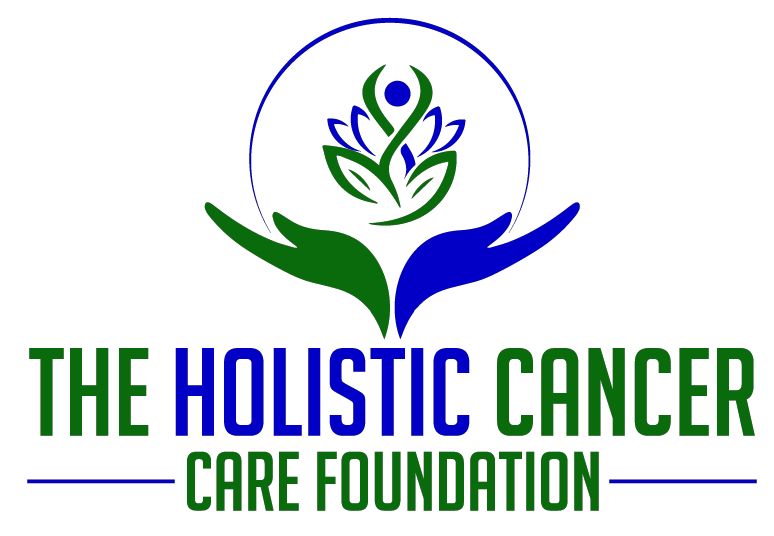When the fall hits, we all think of flu season and ways to support our immunity. We often talk about increasing or boosting immunity but, like most of our biological systems, the immune system is tremendously complicated. Immune cells have to make difficult decisions from moment to moment. Is this a pathogen that needs to be eliminated, or a cell that must be preserved? If it is a pathogen, how do we fight it?
How our immune cells behave and react has critical effects on our health. If your immune system is weak and fails to identify and eliminate an invading virus, it can lead to a serious infection. However, an overactive immune system mistakes your own cells, tissues, and organs as the enemy, and causes a destructive, inflammatory autoimmune response that attacks vital organs and derails total-body health.
When the immune system is in balance, neither over-reacting nor under-reacting occurs, and you get strong protection against infections, cancer cells, toxins, and other threats. A balanced immune system also keeps your vital organs and tissues healthy and working at their best. If you’re concerned about your immune system this flu season, here are natural and simple tips to increase your immune function and maintain your immune balance.
The Best Foods for Immune Health
The first step towards supporting your immune system and balancing immune responses is to provide the right fuel. Remember: immunity is closely connected with virtually every other body system: digestive, cardiovascular, neurological, and hormonal. It all works together, so a strong immune system is critical for our total-body health.
In particular, the digestive system is often considered the “second immune system” because of the vast immune activity that takes place there. Inflammatory foods and ingredients like refined sugars, trans-fats, and processed foods have been shown to significantly impair immune function, in some cases, immediately after we eat them. Eliminating these types of foods from your diet will reduce threats to your immune system.
The best foods to eat for total-body immune health include immune-supportive foods and ingredients like lean protein, sprouted whole grains, nuts, and legumes; lots of organic fruits and vegetables, and healthy fats like olive, coconut, and omega-3 oils. Brightly colored fruits and veggies are particularly important because the phytonutrient compounds that give them their pigments also provide exceptional antioxidant activity, anti-inflammatory support, immune balancing, and other key benefits. Berries, sweet potatoes, squash, carrots, peppers, mangoes, and dark leafy greens are some examples, but there are countless options.1
Cruciferous vegetables are also important. Broccoli, kale, cabbage, and cauliflower contain beneficial compounds called glucosinates, molecules that combine glucose, nitrogen, and sulfur and have been shown to protect against cancer and support immunity.
Garlic is another go-to immune food. Packed with allicin, an ingredient that fights harmful invaders, garlic is a powerful way to support immunity, and it grows during flu season when it’s needed most. Onions are high in quercetin and other antioxidant compounds, onions are excellent foods for supporting immunity and helping to control overactive immune responses including seasonal allergies.
Green and black teas also help optimize immune function. Studies demonstrate that antioxidant compounds and phytochemicals in green and black teas support the immune system and offer other important benefits.2
Cultured foods like yogurt, miso, sauerkraut, and others are rich in beneficial bacteria that play important roles in regulating immune activity—particularly in your digestive system. These friendly microbes deliver a number of benefits for immune and total body health, including influencing gene expression to train the immune system for better responsiveness.3
Don’t forget to drink lots of water. Immune cells travel and communicate through our circulatory and lymphatic systems, so hyper-viscosity is the enemy. Stay well hydrated and support total-body health with plenty of filtered water.
Exercise and Immunity
One of the worst things we can do to our immunity is to sit for hours on end. The good news is, it doesn’t take much to energize both the metabolism and the immune system. A short 30-minute walk each day can do the trick. Even better, practice moving meditations such as yoga, Tai Chi, and Qi Gong. A number of studies have linked these practices to improved immune response, right down to the genetic level. One study showed that even one session of yoga activated numerous genes related to immunity. These practices also calm us, reducing levels of cortisol, adrenaline, and other inflammatory hormones that, when elevated over time, can weaken the immune system.4
Why Sleep Matters for Your Immune System
It’s also critical to get a good night’s sleep, at least 7-9 hours. Without good sleep, multiple systems begin to break down, immunity included. Research continues to show the profound impact of restful sleep on all areas of health, with particular effects on immunity. Lack of sleep is shown to increase risks of infections and autoimmune reactions.5
How Stress Affects Your Immunity
Numerous studies have shown that positive feelings are directly related to strong immunity. Happiness is great medicine and one of the best ways to achieve balance in your life. In that regard, simple meditation practice and/or other healthy stress relief techniques should be a key part of any immune-boosting program.6
Immune Support Supplements
In addition to a nutrient-dense, unprocessed diet, there are many supplements that can help improve and balance immunity. On the most basic level, vitamins A, Bs, C, and D3 have all been shown to support immunity. Vitamin D3 in particular is important to help activate T-cells and other immune components. This vitamin plays numerous critical roles in the body, but because it’s produced in response to sunlight, many people are deficient, particularly people living in northern climes and those of us who work indoors.
Another important immune-supporting nutrient is zinc, which is a key component in T-cells, B-cells, macrophages, antibodies , and other immune cells. A zinc deficiency is known to reduce immunity. Poultry, liver, whole grains, beans, raw nuts and seeds (especially pumpkin seeds) , and wild seafood are all sources of zinc.
Astragalus root has been used in traditional Asian medicine to support immunity, as well as protect against stress. Astragalus offers anti-inflammatory, anti-cancer , and antibacterial activity, among other important benefits.
Modified Citrus Pectin—Super Nutrient for Total-Body Health and Immunity
Pectin is a complex carbohydrate that has been prescribed for its digestive health benefits as a soluble fiber. However, pectin molecules are too big to absorb into the circulation, limiting their effectiveness throughout the body.
Luckily, we’ve solved that problem by enzymatically breaking down these large pectin molecules into a much smaller, more bioavailable size. The result is a powerful super-nutrient called modified citrus pectin (MCP). Once in the bloodstream, MCP provides a wealth of total-body benefits, including immune balancing and optimization.7
MCP is especially helpful for immunity because it controls the inflammatory “survival protein” galectin-3, which fuels chronic inflammation, and. As an alarm protein that gets triggered in response to threats, Galectin-3 plays a key role in driving the inflammatory cytokine storm and other overactive immune responses.
Clinically proven modified citrus pectin is the most-researched galectin-3 inhibitor that effectively blocks the harmful effects of galectin-3 to prevent its deadly impacts, including immune overreactions. At the same time, MCP supports Natural Killer cells and T cells to optimize defenses against infections, cancer, and other threats. I talk more about the survival protein, the body’s innate survival drive, and how to overcome its destructive effects in my new best-selling book, The Survival Paradox.
Medicinal Mushrooms Immune System Trainers
Another excellent natural ingredient that improves immunity and is medicinal mushrooms, which work as powerful immune modulators. In other words, they work to balance immunity by energizing a weak immune response and reigning in an overactive one. Essentially, they help train the immune system to function optimally.8
Mushrooms contain beta-glucans, complex carbohydrates which energize macrophages and other immune cells. In addition, mushrooms support cell signaling, a critical immune function as first responders alert the rest of the body about a dangerous pathogen and coordinate an effective response.
Medicinal mushrooms provide countless health benefits. Improving immune function, fighting cancer, lowering blood pressure and cholesterol, balancing blood sugar, improving neurological health, protecting the liver, and reducing inflammation are at the top of the list.
There are a number of ways to incorporate mushrooms into your diet. Culinary medicinal varieties, such as shiitake, oyster, and maitake are particularly good in soups and sauces.
I recommend a special botanically-grown mushroom formula that includes Turkey Tail, Reishi, Cordyceps , and others to maintain strong immune function against colds and flu. The beauty of this formula is that the mushrooms are grown on a blend of immune-supporting herbs, which helps to enhance their effectiveness.
The Path to Healthy Immunity and Total-Body Wellness
Our immune system works hard to take care of us. We can return the favor by adopting practices that help our immune cells function more effectively, fight infections and long-term illness, and support total-body wellness. These and other immune-supporting measures can go a long way toward balancing and supporting overall wellness, naturally.
Sources:
Milani A, Basirnejad M, Shahbazi S, Bolhassani A. Carotenoids: biochemistry, pharmacology and treatment. Br J Pharmacol. 2017 Jun;174(11):1290-1324.
Khan N, Mukhtar H. Tea Polyphenols in Promotion of Human Health. Nutrients. 2018 Dec 25;11(1):39.
Zhang CX, Wang HY, Chen TX. Interactions between Intestinal Microflora/Probiotics and the Immune System. Biomed Res Int.2019;6764919.
Qu S, Olafsrud SM, Meza-Zepeda LA, Saatcioglu F. Rapid gene expression changes in peripheral blood lymphocytes upon practice of a comprehensive yoga program. Plos one. 2013 ;8(4):e61910.
Asif N, Iqbal R, Nazir CF. Human immune system during sleep. Am J Clin Exp Immunol. 2017 Dec 20;6(6):92-96.
Black DS, Slavich GM. Mindfulness meditation and the immune system: a systematic review of randomized controlled trials. Ann N Y Acad Sci. 2016 Jun;1373(1):13-24.
Eliaz I, Raz A. Pleiotropic Effects of Modified Citrus Pectin. Nutrients. 2019 Nov 1;11(11):2619.
Wasser SP. Medicinal Mushrooms in Human Clinical Studies. Part I. Anticancer, Oncoimmunological, and Immunomodulatory Activities: A Review. Int J Med Mushrooms. 2017;19(4):279-317..



